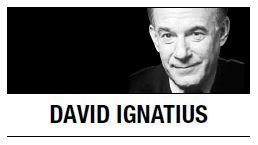A year ago, Chinese President Xi Jinping appeared to be living what he called the “Chinese Dream.” China’s economy seemed strong, its military power was growing, and Xi was aggressively consolidating domestic political power.
called the “Chinese Dream.” China’s economy seemed strong, its military power was growing, and Xi was aggressively consolidating domestic political power.
But Xi is off to a bad new year. The Chinese economy is slowing sharply, with actual GDP growth last year now estimated by U.S. analysts at several points below the official rate of 6.5 percent. The Chinese stock market has fallen 15 percent this year, and the value of its currency has slipped. Capital flight continues, probably at the $1 trillion annual rate estimated for the second half of last year.
But China’s economic woes are manageable compared with its domestic political difficulties. Xi’s anticorruption drive has accelerated into a full-blown purge. The campaign has rocked the Chinese intelligence service, toppled some senior military commanders and frightened Communist Party leaders around the country. Jittery party officials are lying low, avoiding decisions that might get them in trouble; the resulting paralysis makes other problems worse.
“Xi is in an unprecedentedly powerful position. But because he has dismantled the tools of collective leadership that had been built up over decades, he owns this crisis,” says Kurt Campbell, who was the Obama administration’s top Asia expert until 2013. He worries that Xi will “double down” on his nationalistic push for greater power in Asia, which is one of the few themes that can unite the country. “To scale back shows weakness, which Xi can ill afford now,” says Campbell.
Chinese sometimes use historical parables to explain current domestic political issues. The talk recently among some members of the Chinese elite has been a comparison between Xi’s tenure and that of Yongzheng, the emperor who ruled China from 1722 to 1735. Yongzheng waged a harsh campaign against bribery, but he came to be seen by many Chinese as a despot who had gained power illegitimately.
“A lot of historical events of that period are repeating in China today, from power conspiracy to corruption, from a deteriorating economy to an external hostility threat,” comments one Chinese observer in an email.
Xi’s political troubles illustrate the difficulty of trying to reform a one-party system from within. Much as Mikhail Gorbachev hoped in the 1980s that reforms could revitalize a decaying Soviet Communist Party, Xi began his presidency in 2013 by attacking Chinese party barons who had grown rich and comfortable on the spoils of China’s economic boom. Many of Xi’s rivals were proteges of former President Jiang Zemin, which meant that Xi made some powerful enemies.
David Shambaugh, a China scholar at George Washington University, was an outlier when he argued last March that Xi’s reform campaign would backfire. “Despite appearances, China’s political system is badly broken, and nobody knows it better than the Communist Party itself,” he wrote in the Wall Street Journal. “The endgame of Chinese communist rule has now begun.”
This political obituary may prove premature. But there’s growing agreement among China analysts that Xi’s crackdown has fueled dissent within the party and beyond, leading to further repression. Xi is a decisive strongman, so he may fare better than Gorbachev, but the structure underneath him is fragile.
China’s recent economic turmoil may be an inevitable result of the transition Xi is trying to steer. He wants to move China away from a debt-laden bubble economy, which depended on ever-growing exports, toward a more sustainable, consumer-driven model. His problem is that the Chinese system is bloated by inefficient, state-owned enterprises that survive on debt and subsidies. Xi has found it impossible, so far, to cut them loose.
“It’s no easy thing to reboot a $10 trillion economy,” says a former American official who knows the top Chinese leaders well. “Xi is trying to do it all himself,” at a time when “everything is changing at once.”
This month’s financial rout showed the dangers for a China caught between a truly free market and continuing government control. An ill-conceived “circuit-breaker” that kicked in when the stock market fell 7 percent, and government orders to big investors not to sell, probably accelerated the sell-off and the flight of capital. Conflicting signals on whether the central bank wanted a stronger or weaker currency shook the market’s confidence.
Xi has been pressing the free-market accelerator at the same time he pumps the political brake. For a China halfway pregnant with reform, the past month’s turbulence showed that these fundamental contradictions may not be sustainable.
By David Ignatius
David Ignatius’ email address is davidignatius@washpost.com. — Ed.
(Washington Post Writers Group)

